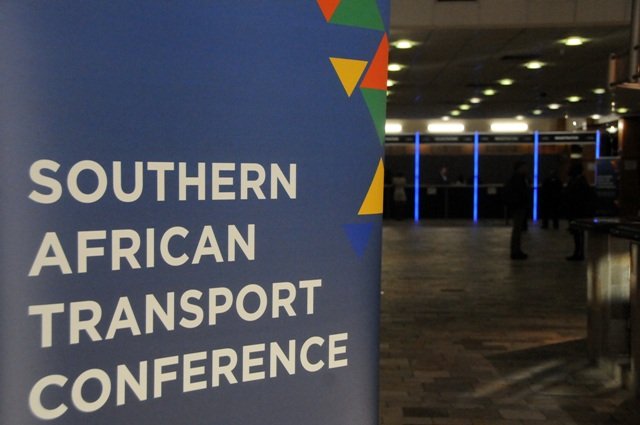As national women’s month in South Africa approaches, women continue to face many challenges in the transport sector, as well as the constant threat – and the reality – of sexual harassment on public transport systems.
The Southern African Transport Conference (SATC) held this week hosted a dedicated, all-day session to unpack many of women’s transportation challenges. Titled “Women In Transport”, the session saw several pieces of research analysing these challenges and interventions to deal with them.
Among the most compelling presentations, a paper presented by Tanya Lane and Marianne Vanderschuren of the University of Cape Town (UCT) Centre for Transport Studies described an innovative digital tool being used to address the problem of sexual harassment on public transport in Africa.
The online tool, named SHE CAN, empowers decision makers across disciplines to share knowledge on interventions to address sexual harassment.
SHE CAN is a user-friendly online resource, assisting policymakers and transport providers to develop an evidence-based approach to addressing sexual harassment and personal security within public transport. It can be accessed at shecan-tool.info.
The SHE CAN tool is the work of the EMPOWER project, a two-year coordinated research programme engaging with passengers and stakeholders from six African countries to understand the prevalence of harassment in both formal and informal public transport networks.
Individuals from Nigeria, Malawi, Ethiopia, South Africa, Rwanda, Kenya, and Ghana participated in design workshops to ensure that the tool was relevant in the African context.
The tool contains five tailored pathways, one each for local authorities, policy makers, enforcement agencies, transport providers and NGOs, who can choose the sexual harassment intervention strategies relevant to them.
The tool filters a list of 48 proven interventions proposed in the literature and produces only those interventions relevant to the user.
SHE CAN includes guidance on questionnaires, sampling, enumerator recruitment and training, ethical considerations and analysis of the data collected. There are also notes on implementing focus group research, stakeholder mapping and surveying and hosting stakeholder workshops.
“The SHE CAN tool (shecan-tool.info) is a valuable new asset in the fight again sexual harassment in public transport,” said the authors, who were also part of the tool’s development process.
“It is conceptually universally applicable and can be adapted for use in different countries, contexts and at different levels of authority and decision making.
The authors said they hoped South African transport planners would use the tool to create awareness of the problem, and as entry point for addressing sexual harassment in public transport.
Another paper delivered at the conference described how women in different African cities are using social networks to navigate informal public transport systems.
The study, by researchers Genevivie Ankunda, Savanna Harvett and Lesedi Dibuseng Mokoma of the University of Pretoria, compared the methods used by women in Tshwane, South Africa, and Kampala, Uganda.
“Minibus taxis, although popular, are known for several challenges including lack of safety and personal security, poor mechanical condition of vehicles, difficulty in obtaining information due to the informal nature of operations, and lack of standard fare structures, among others,” the researchers stated.
“However, due to the absence of viable mode alternatives, women must endure these conditions to access social and economic opportunities.”
Ankunda, Harvett and Mokoma highlighted the ways through which women demonstrate agency and use their social networks to overcome some of the challenges of using informal public transport.
This study was conducted by collecting travel-behaviour data in Tshwane and Kampala using paper-based travel diaries, photos, video clips, voice messages and interviews in a qualitative, mixed-methods study.
The comparative case study approach was used to analyse the cultural and legislative contexts of the cities, as well as any convergent or divergent themes in the role of social networks.
The authors said the findings of their study offered an opportunity for the minibus taxi industry to formalise the provision of accurate, reliable information through existing and trusted channels, to assist women with navigating the informal transport industry.
“Understanding the existing social systems is important to understand the core characteristics of an effective information system for informal transport but can also be harnessed or supported by the more formally organised information sources to improve the commuters’ experience,” the researchers said.
Other events and presentations during the SATC Women In Transport session included “Dialogues for gender-inclusive mobility in Cape Town”; “Empowering women in the transportation sector to foster resilience”; “Attracting and retaining women in public transport”; “The upskilling of female civil engineers at 8 South African metros”; and “Women in transport in the SADC region”.
The 41st SATC event ran from July 10–13 at the CSIR International Convention Centre, with the theme “Rethinking transportation: planning and building resilient systems to meet global externalities”.




